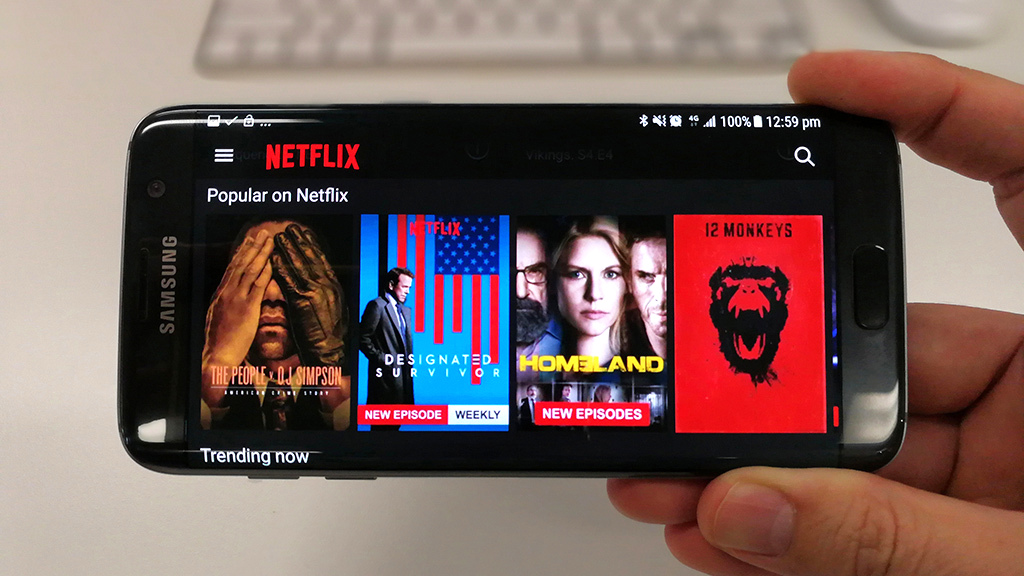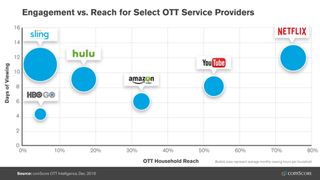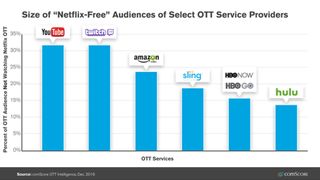Yes, Netflix still leads streaming, but these services are closing in
YouTube in particular is catching up

The streaming wars are heating up, as a new study shows that while Netflix still reigns supreme in most homes, new services are beginning to find ways to close in on Binge-watch Central.
Data released by comScore shows that in December 2016 just over half of all Wi-Fi connected homes in the US used at least one over-the-top (OTT) streaming service, with Netflix featured in a whopping three-quarters of those streaming households.
However, while Netflix's 75% claim of OTT streaming homes crowns it king, the service is getting major competition in both its reach and engagement from the likes of Hulu, Sling TV, and especially YouTube.

While Hulu and Sling TV pale in comparison to Netflix's massive claim of household reach, the two television streaming services have similar engagement rates, or how often people actually use the services.
Sling TV actually beats Netflix in engagement, with comScore's data showing the average Sling-subscribing household rounding up 47 hours of tube time a month, compared to Netflix's average of 28.
It's possible that Sling TV's higher engagement rate, despite relatively lower market share, stems from it being a streaming alternative to cable. Fans of catching the latest shows will have more luck with Sling (and to an extent, Hulu and HBO GO) compared to Netflix, which more or less refreshes its content on a month-to-month basis.
Meanwhile, YouTube's engagement rate doesn't appear as large as Sling or Netflix's, yet the Google-owned video site looks to be the Next Big Thing aiming for Netflix's #1 slot.
Get daily insight, inspiration and deals in your inbox
Sign up for breaking news, reviews, opinion, top tech deals, and more.
Not only did YouTube take a 53% claim on streaming households, according to comScore's survey, the video streaming site tied with Twitch as the leading alternative for the remaining 25% of households not subscribing to Netflix.

YouTube's reach over non-Netflixers may have to do with the site being a popular hub for catching a near-infinite amount of content — particularly for younger people, who don't watch nearly as much television as older age groups, according to a study from MarketingCharts.
YouTube may soon make even bigger waves as it rolls out YouTube TV — a livestreaming cable alternative offering cord-cutters in the US a host of channels with full DVR functionality and on-demand movies.
Though we're just speculating here, YouTube's growing presence could only benefit from the increased engagement of a live television service, meaning Netflix could have some serious competition for its crown in the near future from another red-tinted video streamer.
Via TechCrunch











